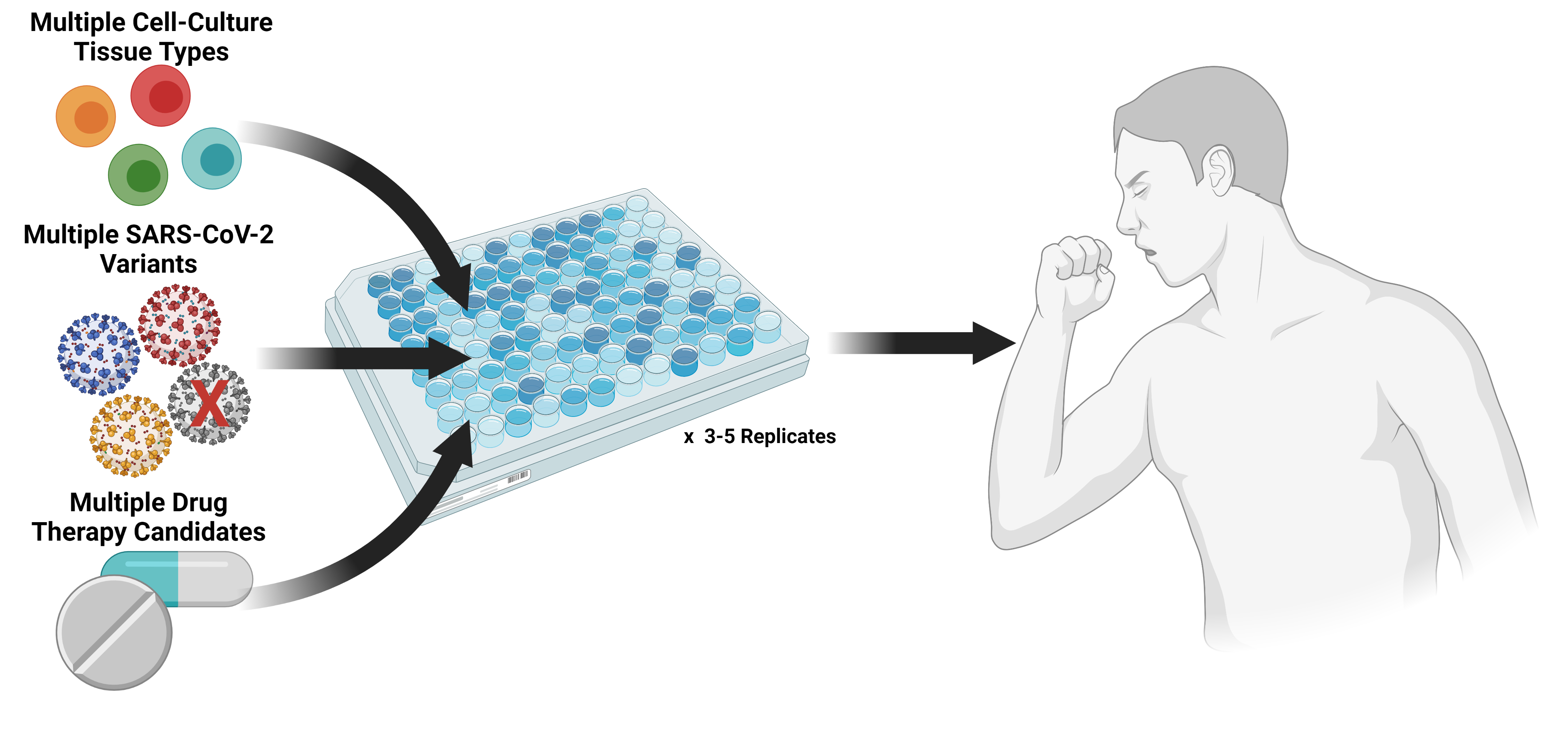As the COVID-19 pandemic progressed, researchers around the world realised that the virus didn't just cause respiratory illness but could affect multiple tissues causing widespread and permanent damage in some people.
With only a few approved drugs available to treat COVID-19, there was an urgent need to identify additional approved drugs, especially those that would be cost-effective and able to inhibit viral replication, reduce COVID-19 symptoms and prevent long-term effects.
The team at CSIRO's Australian Centre for Disease Preparedness, developed a rapid screening system to assess drugs already approved for other diseases for their efficacy against COVID-19.
Developing a novel screening platform
Some of the existing screening platforms, during the pandemic, had limitations, were expensive, time-consuming and were not always fully representative of how humans respond to the virus.

Our scientists used four types of clinically-relevant human tissues – lower respiratory tract, lung, neural and cardiac tissues – specifically selected based on how SARS-CoV-2 infects people.
They derived some of these tissues from stem cells, which are a special type of human cell that can be developed into different cell types.
The project screened three promising candidates.
The team used novel systems biology (a biomedical approach to understand the bigger picture) and machine learning methods to differentiate between healthy and diseased states of key human tissues, which enabled additional ways to determine if a drug was able to reliably restore a diseased tissue to a healthier state.
The project was called the 'sySTEMs initiative', and included collaborators from Barwon Health and the University of NSW. It received $998,355.93 from the Australian Government's Medical Research Future Fund (MRFF) matched by $736,000 from CSIRO.
As the COVID-19 pandemic progressed, researchers around the world realised that the virus didn't just cause respiratory illness but could affect multiple tissues causing widespread and permanent damage in some people.
With only a few approved drugs available to treat COVID-19, there was an urgent need to identify additional approved drugs, especially those that would be cost-effective and able to inhibit viral replication, reduce COVID-19 symptoms and prevent long-term effects.
The team at CSIRO's Australian Centre for Disease Preparedness, developed a rapid screening system to assess drugs already approved for other diseases for their efficacy against COVID-19.
Developing a novel screening platform
Some of the existing screening platforms, during the pandemic, had limitations, were expensive, time-consuming and were not always fully representative of how humans respond to the virus.
Our scientists used four types of clinically-relevant human tissues – lower respiratory tract, lung, neural and cardiac tissues – specifically selected based on how SARS-CoV-2 infects people.
They derived some of these tissues from stem cells, which are a special type of human cell that can be developed into different cell types.
The project screened three promising candidates.
The team used novel systems biology (a biomedical approach to understand the bigger picture) and machine learning methods to differentiate between healthy and diseased states of key human tissues, which enabled additional ways to determine if a drug was able to reliably restore a diseased tissue to a healthier state.
The project was called the 'sySTEMs initiative', and included collaborators from Barwon Health and the University of NSW. It received $998,355.93 from the Australian Government's Medical Research Future Fund (MRFF) matched by $736,000 from CSIRO.
